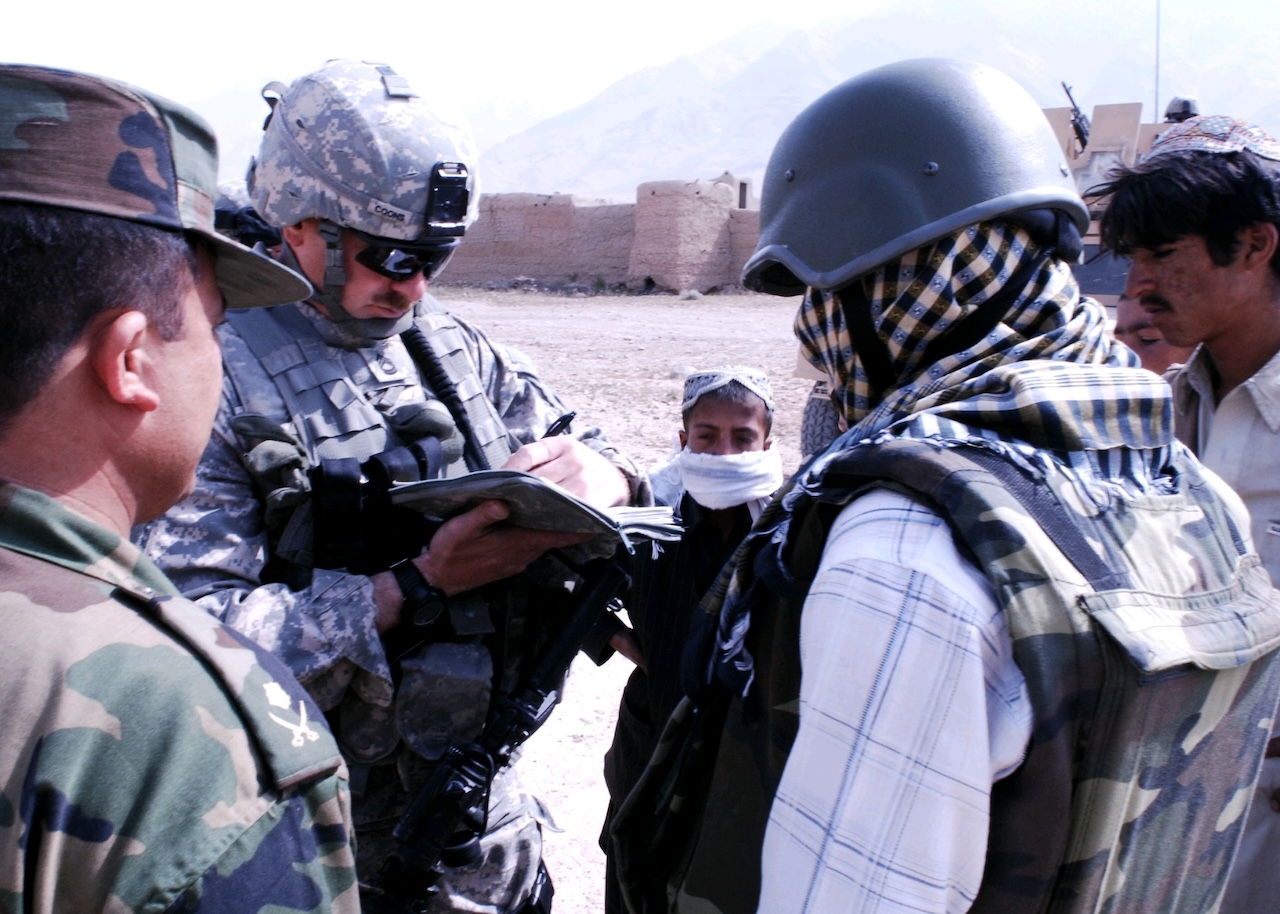Main Street News
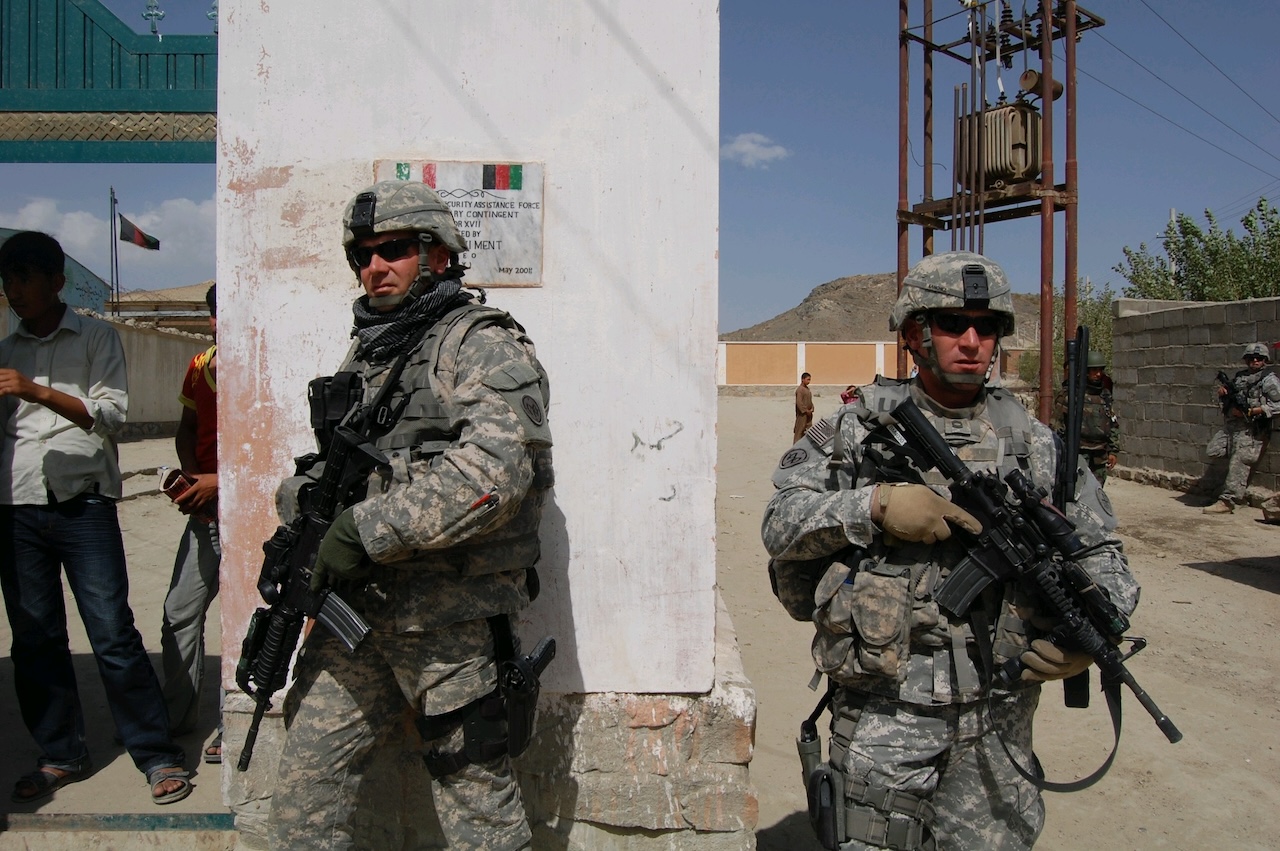
Veteran Profile: Brian Coons
In honor of Veteran’s Day on November 11, we are profiling veterans from around the area all month long to honor their service. This installment features Brian Coons, an Army veteran.
Brian Coons retired as a Master Sergeant from the U. S. Army in 2017 after 28 years of service. A Pine Plains native, Brian first enlisted back in 1986 at just 20 years old.
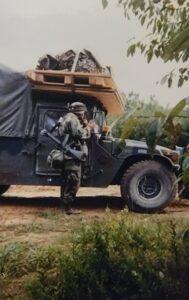
“I went to college for a year and I was just bored,” he said. “My dad was in the Army and four of my uncles served in the military. My parents never pushed me into the military, but I knew that my dad enjoyed it because of the camaraderie and he had lifelong friends from his time in the service, so those were some of the reasons I decided to join.”
Enlistment and service
He served on active duty for a while, and then took a break to go back to college first at Dutchess Community College, and later at SUNY New Paltz, where he received a B.S. in Urban Planning and Development.
Following his education, he decided to join the reserves: “I fell right back into it.”
“I had never thought of the reserves or the National Guard because I was on active duty and believed my service was complete. It’s like a part time job that really isn’t so part time, but I tried it and I liked it.”
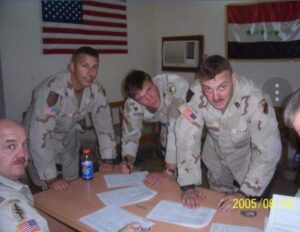 Brian worked in the U.S. Army Civil Affairs, which meant that much of his work dealt with liaising with local governments and militaries to increase stability, enable local governments, and improve the quality of life for civilians.
Brian worked in the U.S. Army Civil Affairs, which meant that much of his work dealt with liaising with local governments and militaries to increase stability, enable local governments, and improve the quality of life for civilians.
He’s served in places all over the world, including Iraq, Afghanistan, Africa, Germany, and Japan, among others.
Much of Brian’s work in Iraq in the early 2000s centered around counter insurgency, rebuilding and repairing infrastructure, and the 2005 Iraqi Parliamentary election.
“The operating picture on the ground was that everyone was into the new election, but there were hundreds of candidates. How are you going to ensure that your candidate is going to get in? You kill the opposition,” he explained. “We were getting attacked weekly by the insurgency.”
Humanitarian aid
Brian also worked on a lot of infrastructure, water and well drilling, and other humanitarian aid.
One of the projects he worked on was building a school in a small village in Afghanistan so that the children would have easier access to education and spend more time in the classroom. “The majority of the population’s education was equivalent to junior high,” he said.
The first step in the process was to check the water supply. Brian and his team were in contact with the local tribal chief to ensure that the location would have access to water year-round, and once that was confirmed, they started building.
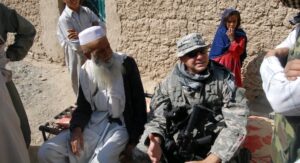
“We started with two buildings for classrooms and an outdoor bathroom with toilets and sinks. It was a really good project. These kids were walking so far to get to school, so to be able to help them in that way made a difference,” he said.
Another project Brian worked on was securing and improving Malalai Maternity Hospital that was located in the center of Kabul. The hospital frequently suffered from interruptions of power, water issues, and backed-up septics. Brian worked with the head doctor and the administration at the hospital to draw up a contract that included an affordable plan for the septic to be pumped weekly and for new piping to fix the water issues.
“We were trying to figure out how to rework the system and make it controllable,” he explained. “We also repainted the entire inside of the hospital, developed delivery rooms, installed a generator, and raised the wall around the hospital by six feet to make it more private. We wanted it to be a place where women would want to give birth to their children and feel safe while doing so.”
In Africa, one of his missions included traveling with a mobile area support hospital from village to village to set up health assessment points where they offered eye exams, dental exams, immunizations, and OB/GYN exams. They also worked to create medical records for everyone that they examined at the hospital.
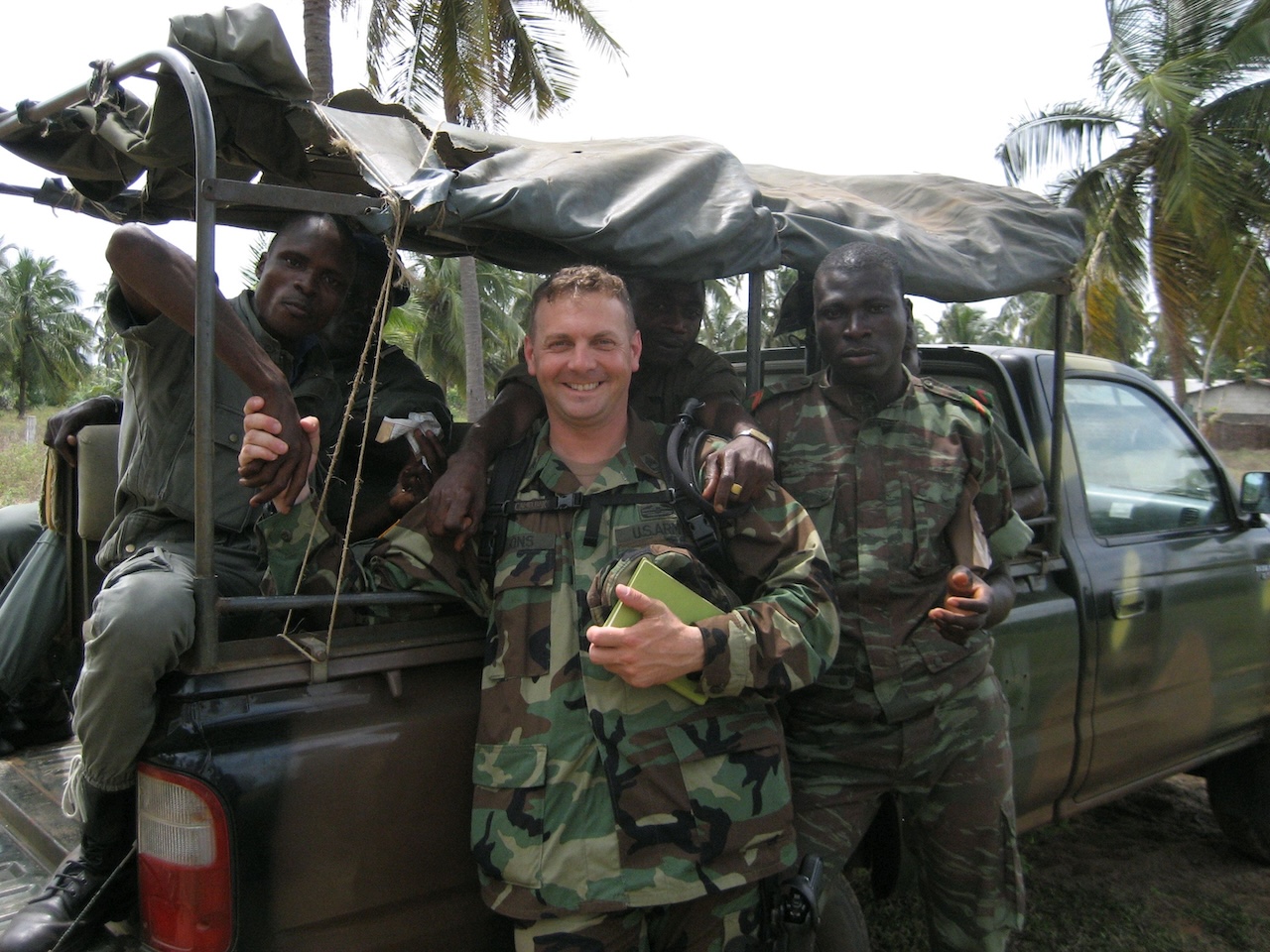
Coming home and life after service
For Brian, it was difficult to come home after combat, particularly from Iraq. “You experience death and ugliness, and it changes you.”
While it was difficult in some ways, he also felt like he was finally able to take a deep breath and relax. “When I finally decided to retire, it took a little time to put some things to bed. It’s a part of me, however, I do not let it define me.”
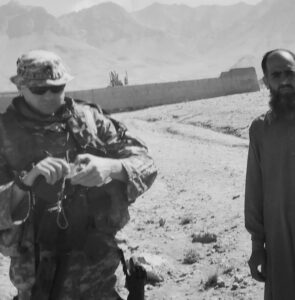
He ultimately made the decision to retire from the military in 2017 because it was time for him to go on another long deployment and he, quite frankly, was tired.
“It was a lot of back and forth. For 10 to 12 years, I would go to Iraq, come home for a little while, go to Africa, come home, go to Afghanistan, and so on. I needed a break.”
Besides his service being incredibly rewarding, one of the things that he remembers most and what he carries with him on a daily basis are the opportunities and ability he had to help others who are less fortunate.
When asked if there was anything he wishes civilians understood about the military, Brian said that he wants people to know that they can serve in many different capacities. He also stressed that the capability to work together as a team towards a goal that will change people’s lives is incomparable.
“The ability for a bunch of people with different social, political, and economic beliefs and backgrounds to come together and make things happen anywhere in the world – that’s pretty amazing,” he said. “We do that through every mission. Operationally, everyone is trained the same way. I think for someone not in the military, it’s hard to imagine how we can really make this all happen.”
Brian, who is the type of person who can talk to anybody, said he never felt threatened by civilians while he was serving.
“I sit down and talk to everybody. That’s just who I am,” he said. “I also found that everyone all over the world has the same issues that we have. It’s much easier to work on things together when they’re seeing the same struggles that we’ve seen before. We’re not so different.”
To learn more about the U.S. Army, visit their website here. To learn more about the U.S. Army Civil Affairs, visit their website here.
